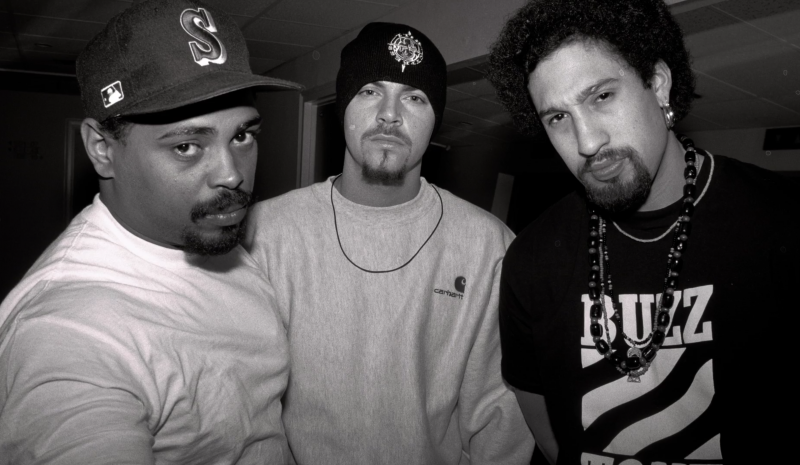That’s not to say the documentary doesn’t take some liberties. The narrative that Cypress Hill were underdogs because they were from the West Coast doesn’t hold up to even casual scrutiny. And there’s an unchecked assertion by one commentator here that Cypress Hill is the biggest selling hip-hop group of all time. They’re not—the Beastie Boys are. (The story of Cypress Hill luring away the Beasties’ percussionist Eric Bobo in the ’90s is told in some depth here, so knowledge of the New York trio’s success shouldn’t be news to Oriol.)
Still, it’s impossible to finish watching Insane in the Brain without a heightened respect for Cypress Hill. Not just because they took Southern California Latino culture to a worldwide audience, but because they made it look easy when it patently wasn’t.
Insane in the Brain is also a reminder that when Cypress Hill was calling for the legalization of cannabis 30 years ago, it wasn’t just a schtick. They constantly advocated for the proposal at a time when—nearly three decades of reggae anthems like Peter Tosh’s “Legalize It” aside—such a prospect still felt impossible. That B-Real owns a chain of dispensaries now (see: Dr. Greenthumb’s in San Francisco’s Mission District) is a major vindication.
The documentary closes with a juxtaposition that drives home the heart of the movie. Shortly after seeing Cypress Hill receive a star on the Hollywood Walk of Fame—the first hip-hop group to do so—the credits roll with a section dedicated to the plethora of their friends who didn’t make it. That these three misfits from South Gate did defies almost all of the odds.

‘Cypress Hill: Insane in the Brain’ premieres Wednesday, April 20, at 8pm on Showtime. Details here.



